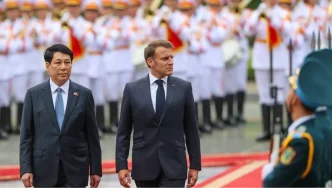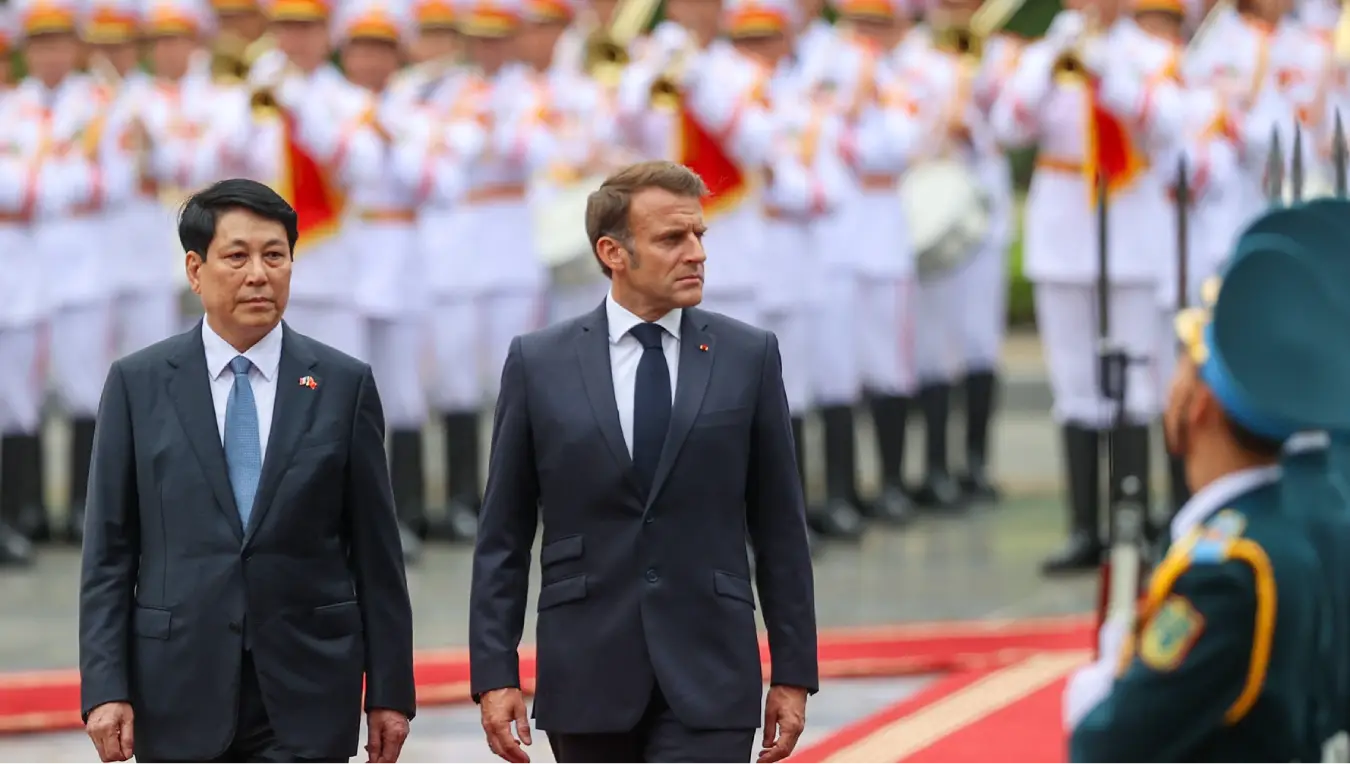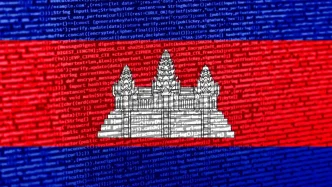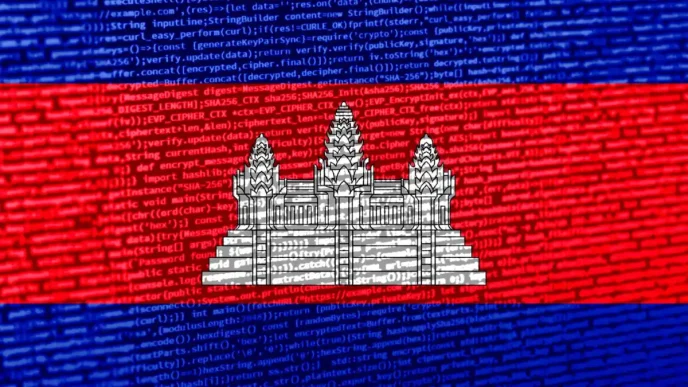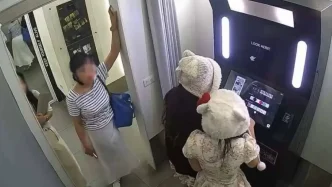In a significant step toward deepening bilateral relations, Vietnamese State President Luong Cuong hosted French President Emmanuel Macron in Hanoi on May 26, 2025, marking the first visit by a French head of state to Vietnam in a decade. The visit, spanning May 25-27, comes on the heels of the two nations elevating their relationship to a Comprehensive Strategic Partnership in October 2024, a milestone that positions France as the first European Union (EU) country to achieve such a status with Vietnam. The talks, held at the Presidential Palace, underscored a mutual commitment to addressing global challenges and enhancing cooperation across a wide spectrum of fields, from defense and climate change to technology and trade.
A Historic Partnership in a Changing World
The timing of Macron’s visit is emblematic of both nations’ desire to fortify ties amid a rapidly shifting geopolitical landscape. President Cuong emphasized France’s pivotal role in Vietnam’s foreign policy, highlighting the Southeast Asian nation’s intent to bolster multifaceted cooperation with Paris. He noted that leveraging shared strengths could enable both countries to tackle pressing regional and global issues, a sentiment echoed by Macron, who congratulated Vietnam on its rising international profile.
France’s engagement with Vietnam is not merely symbolic; it reflects a strategic alignment. As a key EU member, France offers Vietnam a gateway to broader European markets and political influence, while Vietnam provides France with a foothold in Southeast Asia, a region of growing economic and strategic importance. The Comprehensive Strategic Partnership, formalized just months ago, sets the stage for collaboration in traditional areas like healthcare, education, and culture, as well as emerging sectors such as aerospace, urban transport, and renewable energy.
Expanding Cooperation Across Domains
During their discussions, the two leaders agreed on several key directions for future collaboration. High-level exchanges are set to increase, alongside the effective implementation of existing cooperative mechanisms. Defense and security emerged as critical areas, with both sides committing to ongoing agreements and joint efforts to combat transnational crime. President Cuong extended an invitation to senior French officials to attend the signing of the UN cybercrime convention in Hanoi in October 2025, signaling Vietnam’s intent to play a larger role in global digital governance.
Economic ties were a central focus of the talks. The EU-Vietnam Free Trade Agreement (EVFTA), implemented in 2020, has already boosted trade between Vietnam and the EU, with France pledging to expedite the ratification of the EU-Vietnam Investment Protection Agreement (EVIPA). Additionally, Macron assured support for lifting the European Commission’s ‘yellow card’ warning on Vietnam’s fisheries sector, a move that would ease the export of Vietnamese seafood to France and other EU markets. These steps are expected to further integrate Vietnam into the European economic framework, providing a counterbalance to its heavy trade reliance on neighboring China.
Beyond traditional sectors, the leaders explored cooperation in cutting-edge fields like artificial intelligence, semiconductors, and digital transformation. Vietnam, with its burgeoning tech sector and young, skilled workforce, seeks to benefit from French expertise in innovation and research. Agreements on technology transfer, digital infrastructure investments, and training programs for high-quality human resources were among the outcomes of the talks, reflecting a shared vision for a tech-driven future.
Climate and Energy: A Shared Commitment
Climate change adaptation and sustainable development featured prominently in the discussions. Vietnam, one of the countries most vulnerable to rising sea levels and extreme weather, has sought international support for its climate resilience initiatives. France reaffirmed its commitment through official development assistance (ODA) and concessional loans, particularly for energy sector development and human resources training. Under the Just Energy Transition Partnership (JETP), France pledged assistance for specific projects aimed at transitioning Vietnam to cleaner energy sources, aligning with global efforts to reduce carbon emissions.
The emphasis on climate cooperation is not just pragmatic but also symbolic of the broader values shared by the two nations. Both leaders reiterated the importance of multilateralism, with the United Nations at its core, as a mechanism to address global challenges like climate change. This alignment extends to regional issues, with France expressing support for the Association of Southeast Asian Nations (ASEAN) stance on the East Sea, internationally known as the South China Sea. Both presidents underscored the 1982 United Nations Convention on the Law of the Sea (UNCLOS) as the legal bedrock for maritime activities, advocating for peace, stability, and freedom of navigation in the region.
Regional Dynamics and International Law
The mention of the East Sea during the talks is particularly noteworthy given ongoing tensions in the area, where Vietnam and several other nations have overlapping territorial claims with China. President Cuong reiterated Vietnam’s ‘four no’s’ defense policy— no military alliances, no siding with one country against another, no foreign military bases on its soil, and no use of force or threat to use force in international relations. This policy reflects Hanoi’s delicate balancing act in maintaining sovereignty while fostering cooperative regional ties.
France’s backing of ASEAN’s position and commitment to a substantive Code of Conduct (COC) in the East Sea, consistent with international law, adds a layer of diplomatic support for Vietnam. While Macron did not explicitly mention any specific disputes, his affirmation of UNCLOS as the governing framework signals France’s interest in ensuring stability in a region critical to global trade routes. This stance may also serve as a subtle counterweight to China’s assertive actions in the area, though both leaders avoided direct references to Beijing during their public statements.
Cultural and Community Bonds
Beyond geopolitics and economics, the visit highlighted the deep cultural connections between Vietnam and France, rooted in a shared history dating back to the colonial era. President Cuong expressed gratitude for France’s continued support of the Vietnamese diaspora in France, a community that serves as a bridge between the two nations. He also urged France to confirm the organization of the 13th local cooperation conference, a platform for fostering grassroots ties between Vietnamese and French localities.
Following their talks, the two presidents witnessed the signing of over ten bilateral cooperation documents spanning defense, justice, agriculture, transport, science, nuclear energy, climate adaptation, and more. These agreements underscore the breadth of the partnership, touching on nearly every facet of bilateral engagement. On the same day, Macron met with Party General Secretary To Lam and National Assembly Chairman Tran Thanh Man, further cementing high-level political dialogue.
Looking Ahead: Challenges and Opportunities
While the visit marks a high point in Vietnam-France relations, challenges remain. Implementing the ambitious agreements signed during Macron’s trip will require sustained political will and coordination, particularly in complex areas like digital transformation and climate resilience. Economic disparities between the two nations could also pose hurdles, with Vietnam seeking greater investment and technology transfer while France balances its domestic priorities with international commitments.
Moreover, the broader geopolitical context—marked by tensions in the Indo-Pacific and Europe’s own security concerns—may influence the pace of this partnership. Vietnam’s non-aligned stance means it must carefully navigate its relationships with major powers, including France’s EU allies and other global players. If successful, however, this Comprehensive Strategic Partnership could serve as a model for how middle powers like Vietnam can engage with established powers like France to mutual benefit.
As both nations move forward, the outcomes of this visit will likely reverberate beyond Hanoi and Paris. With global challenges like climate change, digital governance, and regional stability at stake, the question remains: can Vietnam and France translate their shared ambitions into tangible results? For now, the renewed commitment offers a promising foundation for addressing these critical issues together.

